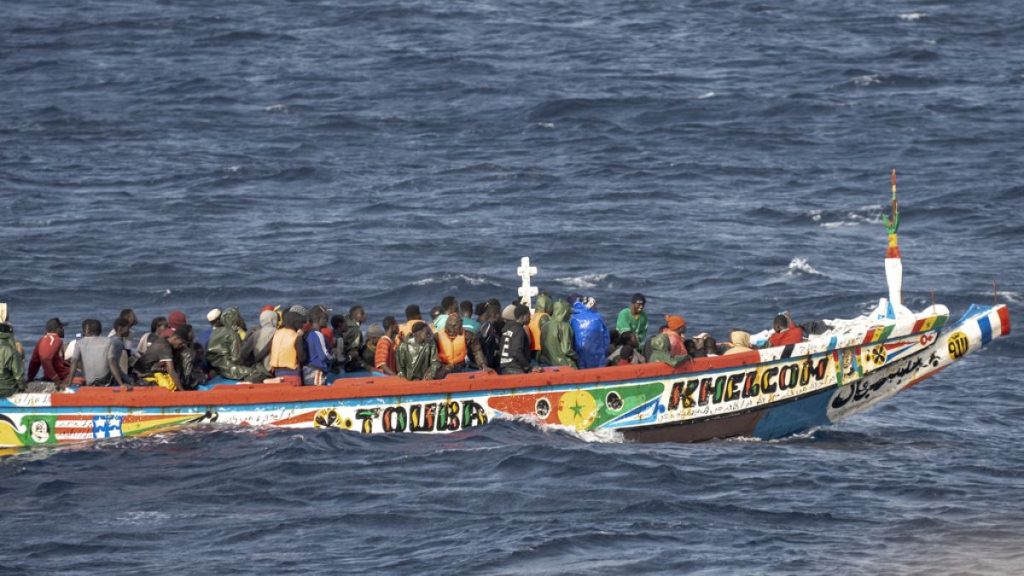The year 2024 witnessed a tragic surge in migrant deaths at sea, with a staggering 10,457 lives lost in attempts to reach Spain, according to the Spanish migration rights group, Caminando Fronteras. This represents a devastating 58% increase compared to the previous year, underscoring the escalating risks faced by individuals seeking refuge and opportunity in Europe. The vast majority of these deaths, 9,757, occurred along the perilous Atlantic route, a treacherous passage from West Africa to the Canary Islands. This route has become increasingly popular amongst migrants seeking entry into Europe, but its dangers are evident in the alarming loss of life. A further 700 deaths were recorded on the Mediterranean routes, though these represented a smaller proportion of the overall tragedy. The organization’s report highlights the immense human cost of migration, painting a grim picture of the precarious journeys undertaken by those seeking a better future.
The Atlantic route, deemed the world’s most dangerous migratory sea crossing, involves perilous journeys from West African countries like Mauritania to the Spanish Canary Islands. These islands, situated off the African coast, have become a key gateway to mainland Europe for many migrants. The surge in departures from Mauritania in 2024, as highlighted by Caminando Fronteras, transformed the country into the primary departure point for those attempting this perilous voyage. This increased traffic also underscores the growing desperation driving individuals to risk their lives at sea. The inherent risks of the Atlantic route are exacerbated by factors like overcrowded and unseaworthy vessels, unpredictable weather conditions, and the limited capacity for search and rescue operations in such a vast expanse of ocean.
The human tragedy is further amplified by the report’s specific figures: 1,538 children and 421 women perished during these perilous journeys, with April and May identified as the deadliest months. This stark reality highlights the vulnerability of women and children during migration and the urgent need for enhanced protection measures. The report attributes the increase in deaths, in part, to the escalating number of boats departing from Mauritania, making it a critical point of focus for intervention and preventive measures. International efforts to address the root causes of migration in these regions and to provide safe and legal pathways are paramount in mitigating this escalating humanitarian crisis.
Caminando Fronteras compiles its data through a combination of testimonies gathered from migrant families and official statistics of those rescued at sea. This approach aims to capture a more comprehensive picture of the loss of life at sea, acknowledging that official figures may not always reflect the full extent of the tragedy. The organization’s methodology emphasizes the importance of giving voice to the experiences of migrant families and highlights the human dimension of this crisis. This contrasts with methods relying solely on recorded incidents, which can potentially overlook unreported cases and underestimate the true scale of the tragedy.
The stark figures presented by Caminando Fronteras differ significantly from data reported by other organizations like the Missing Migrants Project (MMP), which recorded 979 missing migrants along the Atlantic route in 2024. These discrepancies highlight the complexities and challenges inherent in data collection on migrant deaths. Factors contributing to these variations include differences in methodologies, access to information, and the often clandestine nature of these journeys. Caminando Fronteras also highlights the challenges faced by families in reporting incidents to authorities, often encountering obstacles that hinder their access to justice and closure.
The inherent difficulties in data collection are further compounded by the challenging context of migration across the Mediterranean and Atlantic routes. The Missing Migrants Project acknowledges the limitations of its data, noting that it represents only a fraction of the total number of migrants transiting in Africa. Challenges such as language barriers and limited access to digital media in some regions impede efforts to gather accurate information. Despite these challenges, organizations like Caminando Fronteras and Missing Migrants Project remain vital in their efforts to document these tragedies and advocate for greater protection of migrant rights. Their work is crucial in raising awareness of the human cost of migration and in pushing for policy changes that prioritize safety and human dignity. The stark reality of thousands of lives lost at sea demands a more concerted and compassionate global response to the migration crisis.

